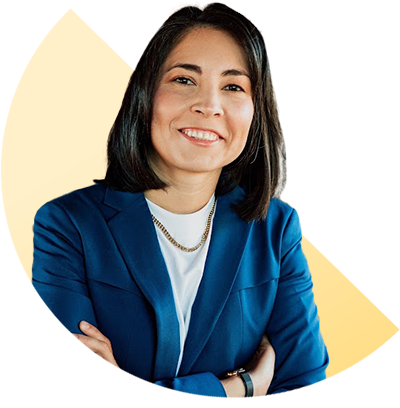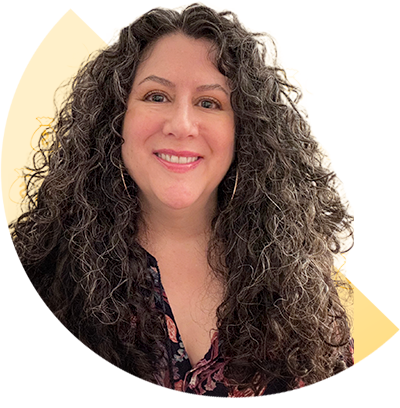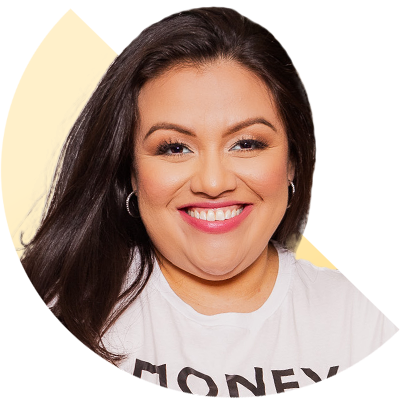Managing your debt can be difficult. It can be challenging, especially for mothers who are tracking far more than the numbers in a spreadsheet. Every mother’s financial journey is shaped by her family structure, caregiving responsibility, health, income goals, and emotional bandwidth.
Economic decisions are a strategic response to each mother’s life demands. A payment plan that makes sense to one mother may feel impossible for another mother. So, debt advice must start in context. Because money decisions are always shaped by what is happening in our lives, in our homes, in our bodies.
I spoke to five financial coaches each. From business credit cards to bankruptcy, from foster parents to first-time parenting, it reminds us that it’s not just about paying off debt, but also about self-confidence, creativity and self-compassion.
Meet your mom
Newborn mother: Andrea Ramos is adapted to life at 16 weeks of age, managing business debt and prioritizing nervous system regulation.

Foster parents: Nicole Valenzuela’s parents are under the careful eyes of the foster care system and use the Investor (ROI) mindset to manage their debts in sovereignty.

Bankruptcy Survivor Mama: Deborah Johnson Miranda believes in reconstructing financial losses as resilience and naming debts without shame.

Chronic illness mothers: Sahirenys Ortega Pierce relies on structure, bounty and family mantras to keep themselves prepared for the curveball of life.

Mom of a earner: Natalia Segoviano has learned to build a debt-free life and protect joy from burnout, supporting her family with one income.
Newborn mother
Andrea Ramos This is the first mother to a 16 week old baby girl. She is currently navigating through the soft, sleepy, deep and harsh seasons of early motherhood. It means a quiet miracle mixture of nursing sessions, baby snuggles, and watching your daughter grow up. “It’s a balanced act,” says Ramos. “I’m back to work two days a week so I can still attend, but I’m continuing to grow my money coaching business.”
Andrea personally has no debt, but she currently has five figures. Business Credit Card debt. What’s noteworthy is her way of thinking. “I feel calm and neutral about it. I believe I can reward it and reward it.” For her, debt is not a source of panic. It’s just a part of the journey when you have plans and beliefs in your ability to increase your income.
Her tools are more internal than external. She focuses on regulating the nervous system, allowing her to stay creativity, potential and curiosity. Generating revenue And then make the empowered decision. “I do my best when I feel safe,” says Ramos.
Foster parents
Nicole Valenzuela He is the financial coach at Quilatina and founder of fiscal development. In her fourth year as a foster parent, she navigates the powerful seasons of life – preparation for marriage, Pursuing permanence with my son Expand your business that matches your value. “There’s no roadmap for success with my shoes,” Valenzuela said. “So I do what many of us do. I lead it with love, grit and lots of Google sheets.”
Nicole personally has no debt after paying off $270,000, but she chose to take it Business debt Start practicing her coaching. The hardest part of managing that debt was not the numbers – it Emotional weight.
As a foster parent, Nicole makes all financial decisions under the microscope. “I raise my children under the careful eyes of the nation and his biological family. I have to provide resources emotionally, economically and legally.
Nicole’s thinking changed when she moved from rarity to sovereignty. She began to use the idea of ROI to guide every decision, asking, “Does this investment support the life I want?” She tracks both financial and emotional returns and uses Interest-free credit card Strategically to cover costs ahead of time while protecting her cash flow.
Bankruptcy Survivor Mama
At 55, Deborah Johnson Miranda He is a lifelong caregiver and a proud mother of three grown children. For over 20 years, she has been a paid caregiver for her younger sister who has Down syndrome and now supports her 91-year-old mother.
Her children are now young adults, but she still shows up in intense love and protection. In particular, they navigate life as nervous Latinos in a world that often misinterprets them. “They are great, funny and justice-oriented,” she says. “I’m very proud to be their mom.”
The most difficult part of managing debt wasn’t mathematics, it was the feeling of being trapped. “Filling (original text) bankruptcy It felt like a failure. I didn’t tell anyone other than my family. The shame was heavy. “She submitted twice Lost her homeBut it was her point of view that shifted. “I didn’t lose. I made the right phone call. I sold the house, got the money from it, found a safe place to rent. And we’ve been living here for five years.”
Her healing began when she stopped trying to do it all by herself. “Super independence is a survival strategy, but it’s not sustainable. I had to seek help, get over myself and focus on what I could.”
Chronic illness mother
Sahirenys Ortega Pierce A Southern California mom, wife of two, founder of finance and lifestyle establishment, a business that helps others deliberately manage their money and lifestyle. She has moved from being a home mom She runs her own company – Navigating maternal, chronic diseases, and unpredictable rhythms of raising children.
“Between speech therapy sessions and teaching my children Spanish,” says Ortega Pierce, “I have learned that time is precious, and it is essential to give myself grace.”
She and her husband Debt has been eliminated Early in my parenting journey, consecutive emergencies reminded me of how quickly financial stability changes.
“We realized that debt can sneak into basic necessities,” explains Ortega Pierce. Since then, they have committed to save now, pay later lifestyle – focusing on Building a strong emergency fund And being intentional about spending only on what they can afford at the moment. For their families, the sense of security comes from planning ahead rather than relying on trust to extend beyond their means.
When she stopped looking at spending as her first solution, a major change of mindset occurred. “You don’t have to Amazon Prime every issue,” she says. “We remind each other. We are problem solvers. Discomfort is part of growth.” That same idea is now a family mantra. We can do difficult things.
Mom of a earner
Natalia Segoviano She is a full-time professional money coach and a proud mother to an 8-year-old daughter. For the past seven years, she has been the only income earner in the family, but her husband, a stay-at-home father, has led the caregiving. “That makes sense,” says Segoviano. “I loved my job, I made more money and he hated him.” The couple, who lived in Los Angeles for less than $100,000, made a deliberate choice to prioritize caring for their daughter and peace in their family.
According to Nasalia, the most difficult part of managing debt was not the numbers. “I remember paying $655 a month into debt and thinking, ‘We can travel with this.’ ” Sustainable Debt Remuneration Planher financial photos have started to change. She learned to budget with Paycheck, saving her first $1,000 through the envelope challenge and began using it Sinking funds Plan for both fun and emergency situations.
Increased her income through coaching helped, but it was a new challenge: burnout. “I had to learn how to set boundaries with myself.” “Working 9-5 and running a business is not sustainable without breaks. I had to remember myself as a pace: progress is more important than perfection.”
Let you guide your wisdom
These five moms have proven they don’t have a one-size-fits-all approach to managing their debts. Some relied on thinking and others relied on structure, but all made decisions rooted in their values and their reality. What they share is a deep commitment to care. It is itself a family and their future.
Whether you’re juggling a bottle or a court hearing, chronic illness, or burnout, remind them that there’s always a way to move forward in their stories. Borrow what resonates, adjust what fits, and give yourself permission to move at your own pace.
You’re not just paying off your debts – you’re building a life that honors the fulfillment of who you are.










